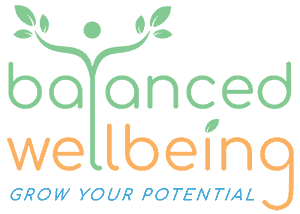As a Health Psychologist, I’m always interested in what the research is saying about what’s best for mind and body wellness. Some of you know that I read widely and will often apply the principles I learn in therapy pending on clients’ presentation. With the rise in mental health problems, gut issues, autoimmune diseases, obesity, Alzeimer’s, dementia, cancer, diabetes, heart problems, osteoporosis, dental disorders, and other chronic conditions, it’s no wonder we find ourselves taking our health into our own hands. The World Health Organisation (1, 2; WHO) stipulates that diet and nutrition are paramount in preventing a host of diseases and in keeping healthy throughout our lifespan. There’s no getting away from it – if we want to prevent being sick, eating well is the corner stone of a healthy, balanced brain and body. But, what do we mean by eating well?
Dr Mark Hyman, who coined the heading of this newsletter, wrote a book called “Food: What the Heck Should I Eat?” (2). After many years of treating people in his medical practice and helping them overcome many diseases, he too became confused about what’s the healthiest way to eat. His book is a no non-sense look at all the food categories and what the research says is best and for what reason. He demystifies some untruths and reveals some research that was misappropriated, which in affecting the quality of the way we eat, has had dire consequences on our health over recent decades. Dr Steven Gundry, a respected American heart surgeon, has also helped us understand that so called “healthy foods” are in fact the cause of our many health problems. In his book “The Plant Paradox” (3), he explains the contradiction that we have been made to believe about what’s healthy and what’s not. He, himself, couldn’t work out that despite he ate “healthily” and exercised, he had high blood pressure, arthritis, high cholesterol, and carried excess weight. Not a good advertisement for a heart surgeon, hey – haha.
Of course, there are a host of medical professionals who have lectured, practiced, and written on this topic of what’s the best way to eat. Some are specific to overcoming an ailment, whilst others discuss it more generally. To help me get my head around what everyone is saying, I summarised it in a table, of which I’m happy to share with you. The information I provide here is definitely not exhaustive. I’m only covering a handful of books I’ve read from a select group of health professionals. Also, I am not professing that there is a right or wrong way to eat as I believe everyone should make their own choices, whether it be due to personal preferences, ethical reasons, or given current health condition. My goal here is to discern the differences and similarities so that lay people like us can apply it practically. It goes without saying that before significantly changing the way you eat, it’s always best to consult a health professional.
In perusing the summaries of the 5 styles of eating suggested, the common message is limit sugar, sweets, processed food, sugary drinks, fruit, and alcohol. Eat a lot more veggies. Increase healthy fats and nuts. Choose quality proteins and don’t overdo. And drink more water. There are mixed ideas about grains, beans, and legumes and this depends on their philosophy and scientific view.
If you want help to change your eating, exercise or lifestyle habits, call Dr Marie Anderson on 0411 319 990 to discuss strategies.
References
-
The World Health Organisation. (n.d.). Nutrition: The Global Burden of Chronic [Diseases]. Retrieved from https://www.who.int/nutrition/topics/2_background/en/.
-
The World Health Organisation. (23 October 2018). Health Diet. Retrieved from https://www.who.int/news-room/fact-sheets/detail/healthy-diet; https://www.who.int/nutrition/topics/5keys_healthydiet/en/; https://www.who.int/features/qa/cancer-red-meat/en/.
-
Hyman, M. (2018). Food: What the Heck Should I Eat? Little, Brown and Company: New York.
-
Gundry, S. R. (2017). The Plant Paradox: The Hidden Dangers In “Healthy” Foods that Cause Disease and Weight Gain. Harper Collins: New York.
-
Brinkworth, G. & Taylor, P. (2018). CSIRO Low-Carb Every Day. Pan Macmillan Australia: NSW.
-
Buettner, D. (2015). The Blue Zones Solution: Eating and Living Like the World’s Healthiest People. National Geographic: Washington, DC.


